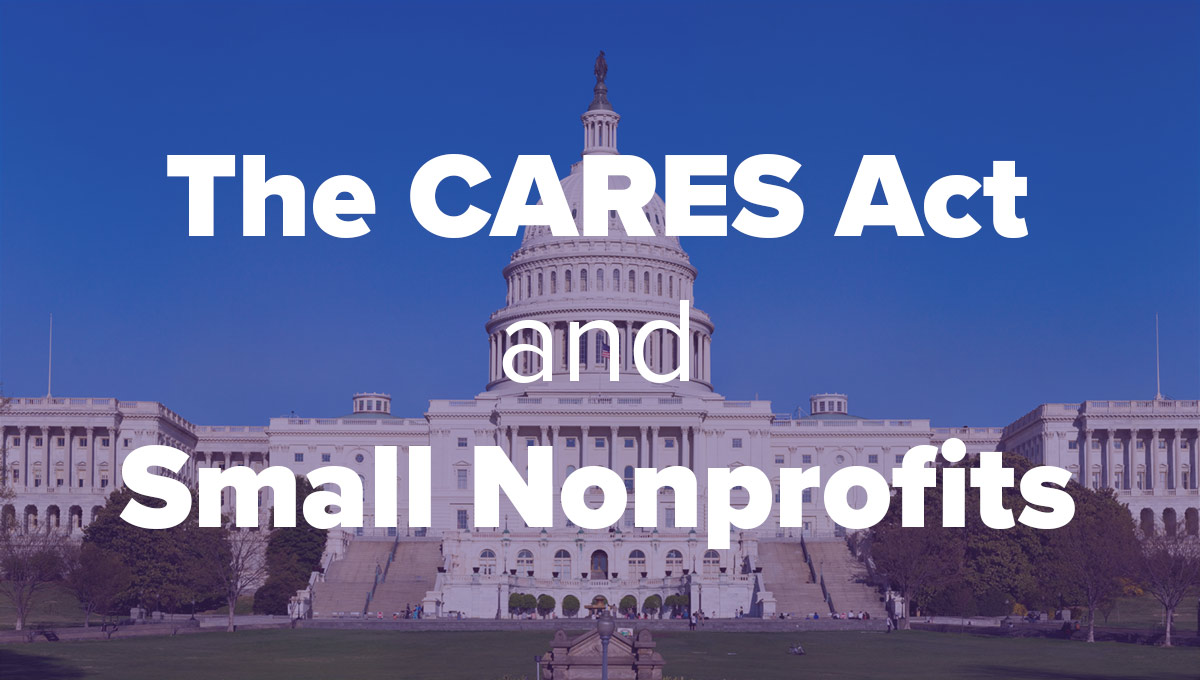When the Coronavirus Aid, Relief, and Security (CARES) Act passed through Congress and nonprofits saw that they were eligible for the Paycheck Protection Program, organizations across the country breathed a sigh of relief. Those still open and operating to serve populations most at need during the crisis could focus on executing their mission, and those who have had to close their doors and lay off staff could bring their employees back and start planning for the future post-COVID-19.
Unfortunately, as the details of the law and the chaos of its implementation unfolded, it became clear that many smaller nonprofits were going to be left out.
On its whole, the CARES Act was destined to be an inequitable nightmare — forcing nonprofits and mom-and-pop shops to compete for the same pool of money as small, more profitable businesses. From the language barriers facing immigrant-run organizations to the lack of access to strong banking relationships for small organizations, the CARES Act missed an opportunity to ensure that nonprofits could continue their work during this crisis and pick up the pieces to fill the gaps in our nation’s safety net in a post COVID-19 world.
The CARES Act Itself
A nearly 900-page behemoth of a document, the CARES Act is the first relief legislation passed that has ever included aid to nonprofit organizations. This means nonprofit professionals have little experience parsing through the lawyerly language and legalese. Without the assistance of an in-house counsel or a pro-bono attorney, smaller nonprofits were clamoring for assistance from industry organizations.
Imagine you are running a nonprofit with six full-time employees that feeds hundreds of children who are food insecure while schools are shuttered; now add to this simultaneously trying to understand the rules of the CARES Act. And if you are an organization that is run by or primarily serves non-English speakers, good luck finding a copy of the act in your first language.
Banking Relationships
Small nonprofits are not usually the most valuable clients that banks have in their portfolio. With often small accounts and little engagement outside of everyday banking, many nonprofits have minimal contact with their banks and lack strong relationships with account managers. Meanwhile, venture capitalists with four people on staff who work with million-dollar investments are competing for the same attention — and pool of money. Guess which organization gets more attention from their lender?
Additionally, to participate in the Paycheck Protection Program (PPP), you must apply through a Small Business Administration approved bank. As the PPP kicked off on Friday, April 3, if your bank was not already a SBA approved lender, finding a bank that would take your small nonprofit organization on just for these loans proved a herculean task, as many banks refused to accept new clients.
Historically, racial inequities in access to bank lending is nothing new. Businesses run by people of color are automatically less likely to receive bank loans. According to data from the US Federal Reserve, more than half of companies that have black owners were turned down for loans, a rate twice as high as white business owners. It is worth noting that black, Latinx, and Native American communities are the most disproportionately harmed by COVID-19. Nonprofits serving those communities will need additional funding to support their efforts and are likely hard pressed to receive it through the CARES Act.
Uneven Roll Out Across Banks
Even if your organization was able to maneuver through the daily changes to the application, with the latest change happening at 10 p.m. the night before the program went live, it’s likely your bank wasn’t prepared. Banks were supposed to start accepting applications on Friday, April 3, but as the day went along the opening of online application portals varied from bank-to-bank. Even days later, some banks were still struggling to implement their program. Simply keeping up with your bank’s process is a full-time job.
What Congress Must Do to Address Need in the Nonprofit Sector
It is clear that the nonprofit sector needs more than the CARES Act provides. Nonprofit organizations are an economic engine as the third largest employment sector in the U.S., and have long been tasked with caring for our most vulnerable populations — the size of which will only continue to grow as the COVID-19 crisis worsens across the United States. It is unacceptable and furthers societal inequities if this important sector does not receive targeted and appropriate allocations in subsequent relief packages.
To remedy the inequity, Congress should pass additional funding legislation that provides unrestricted operating grants to small and community nonprofits that will allow them to retain staff, pay rents and mortgages, and plan for the future without asking them to compete with for-profit businesses that have access to more robust legal and banking connections.
Nonprofits serve all of us, no matter if you reside in a rural, urban, or suburban community. Nonprofits provide services for all of us, whether you utilize support from food banks, take adult enrichment classes, rely on childcare or afterschool programs, or take a dance class. Nonprofits touch all of our lives in a myriad of ways, and are an essential part of our daily lives, our communities, and our economy.
Our nonprofits have been there to fill the voids in the social safety net for over 100 years. It is time for Congress to return the favor.
